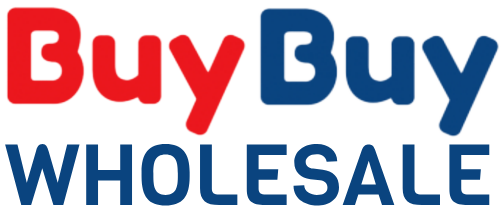Understanding Wholesale Pricing
Wholesale pricing is a critical concept in the commercial landscape, offering a distinct contrast to retail pricing. At its core, wholesale pricing involves the sale of goods in bulk at reduced rates, often significantly lower than the prices found on retail shelves. This pricing model is primarily designed to facilitate the purchase of large quantities, thereby enabling economies of scale.
The determination of wholesale prices hinges on several key factors. One primary element is bulk purchasing; wholesalers buy products in substantial volumes directly from manufacturers, allowing them to negotiate considerable discounts. These discounts are typically passed down the supply chain, culminating in lower prices for the end consumer. Another vital factor is the reduction in middleman costs. By eliminating or minimizing intermediary stages, wholesale prices can be kept competitively low.
Wholesale pricing offers numerous advantages for businesses and consumers alike. For businesses, particularly retailers, wholesale pricing translates to higher profit margins. By acquiring products at a reduced cost, retailers can either enjoy greater profitability or pass on the savings to their customers, thereby enhancing competitive edge. Consumers, on the other hand, benefit from the ability to purchase larger quantities at lower prices, making wholesale purchasing an attractive option for those seeking cost savings on bulk buys.
Despite its benefits, wholesale pricing is often shrouded in misconceptions. One common misunderstanding is that wholesale prices are exclusively available to large-scale businesses. In reality, a variety of entities, including smaller businesses and individual consumers, can access these prices, typically through wholesale clubs or online platforms. Another misconception is that wholesale products are of inferior quality, which is generally unfounded. Wholesale items often come from the same manufacturers that supply retail markets, ensuring comparable quality standards.
Understanding the fundamentals of wholesale pricing is essential for navigating the commercial world effectively. By recognizing the benefits and opportunities it presents, both businesses and consumers can make informed purchasing decisions that optimize cost efficiency and profitability.
How to Access Wholesale Prices for All Products
Accessing wholesale prices can be a game-changer for both individuals and businesses, offering significant cost savings and a competitive edge. One effective strategy is joining wholesale clubs or associations, which provide access to a wide range of products at discounted rates. These memberships often come with additional benefits, such as exclusive deals and early access to new products.
Another practical approach is obtaining a reseller’s license. This allows you to purchase goods tax-free from manufacturers and wholesalers, which can substantially reduce your overall costs. Many states have a straightforward application process for obtaining a reseller’s license, making it a viable option for both new and established businesses.
Direct purchasing from manufacturers or wholesalers is also a highly effective method. By eliminating intermediaries, you can secure the best possible prices. Establishing direct relationships with these suppliers can lead to long-term partnerships, ensuring a steady supply of goods at wholesale rates. It’s crucial to maintain professionalism and reliability, as these traits are highly valued in the wholesale industry.
Online platforms have revolutionized access to wholesale prices, offering a convenient and efficient way to source products. Websites like Alibaba, DHgate, and Wholesale Central provide a vast array of goods at wholesale prices, catering to various industries and needs. These platforms often feature user reviews and ratings, helping you make informed purchasing decisions.
Understanding and navigating minimum order quantities (MOQs) is essential when buying wholesale. Many suppliers require a minimum purchase amount to offer their best prices. While this can be a barrier for smaller buyers, negotiating with suppliers or pooling orders with other buyers can help meet these requirements.
Building strong relationships with wholesalers is pivotal. Consistent communication, timely payments, and reliability can lead to better deals and priority service. For instance, a small business owner who regularly purchases inventory from a trusted wholesaler may receive special discounts or extended payment terms, further enhancing their cost savings.
Real-life success stories abound, such as a local retailer who transformed their business by accessing wholesale prices, leading to significant profit margins and the ability to offer competitive pricing to customers. These examples highlight the tangible benefits and potential growth opportunities available through wholesale purchasing.
